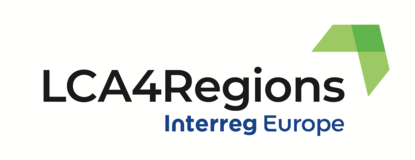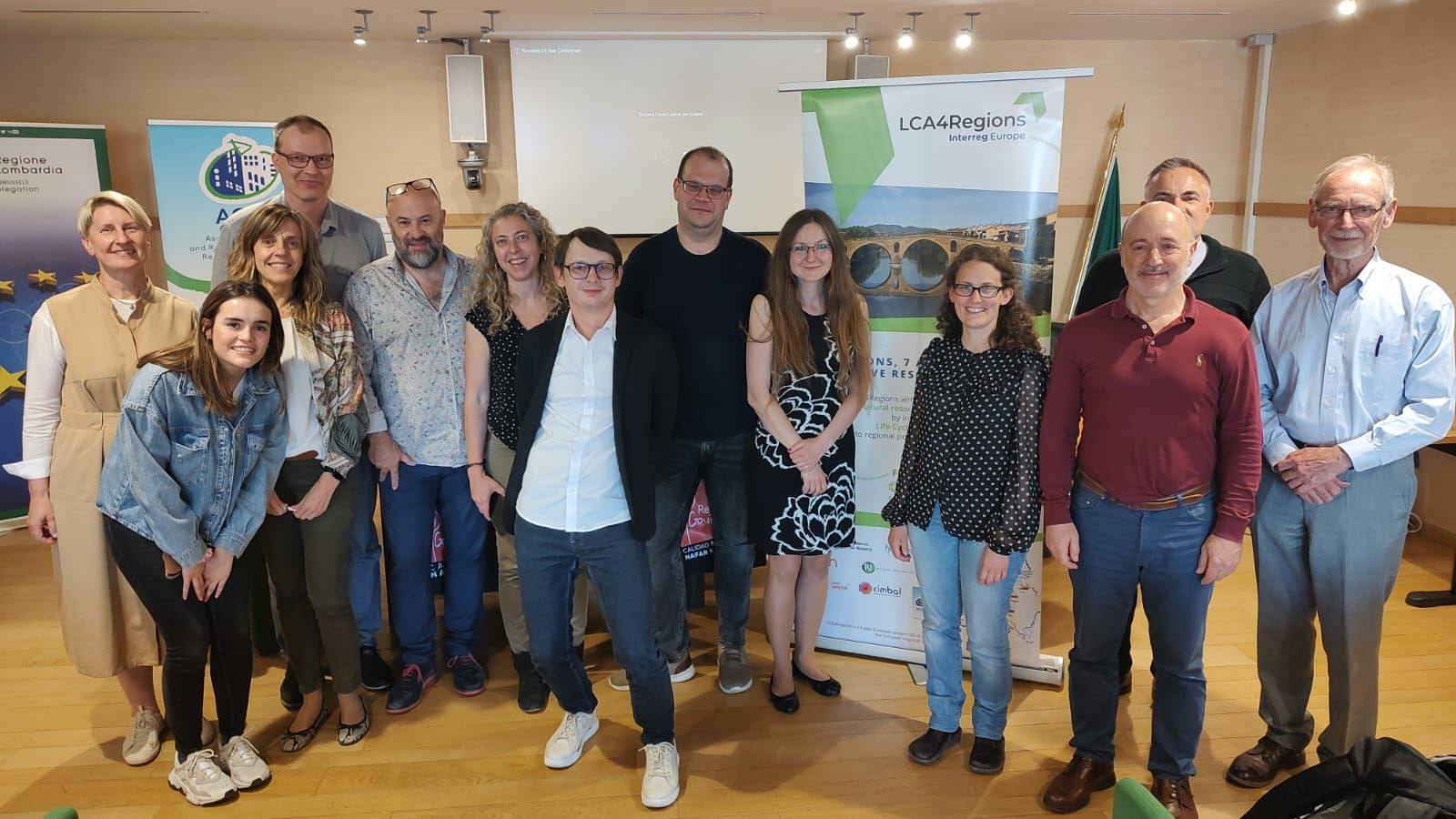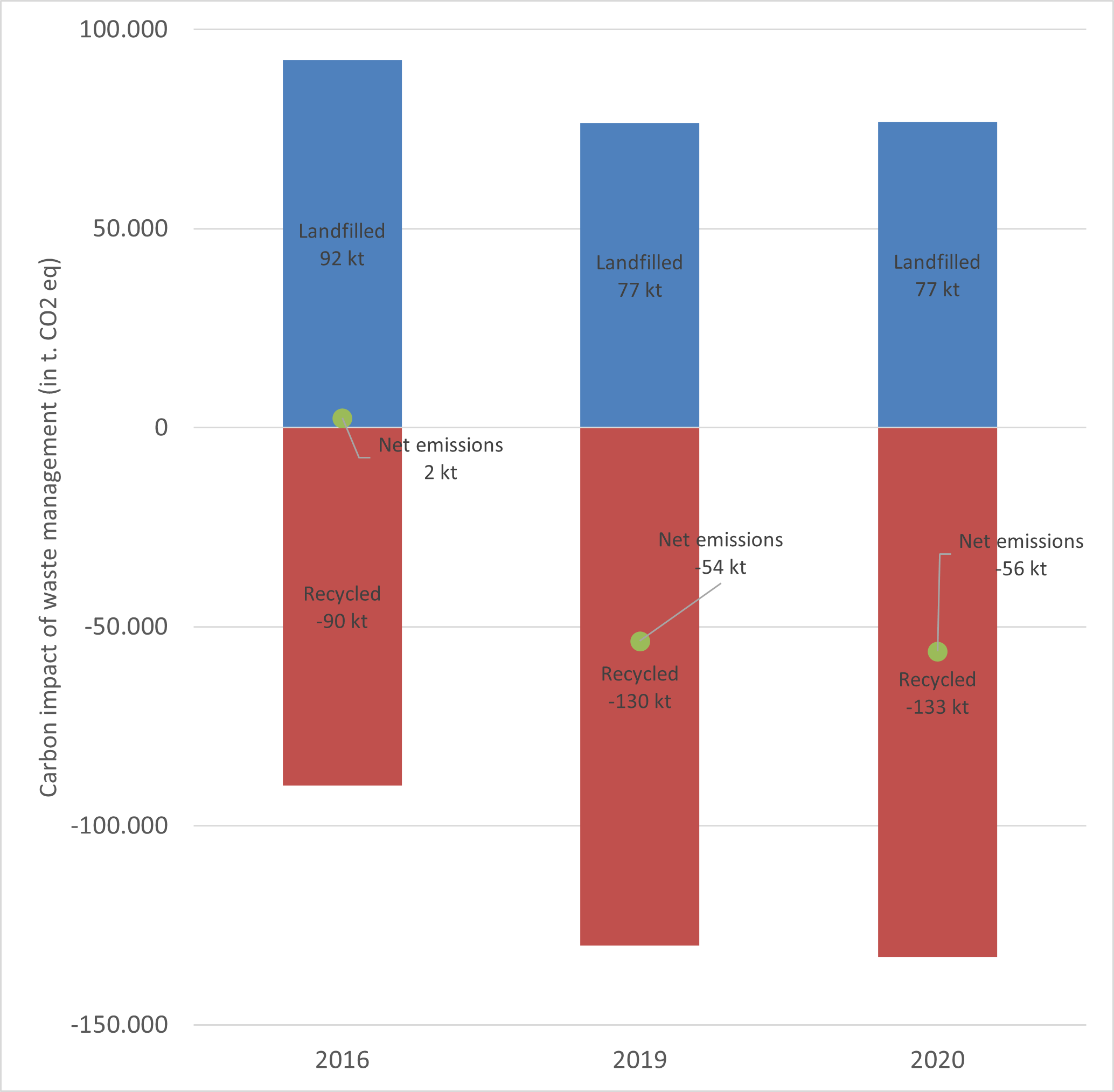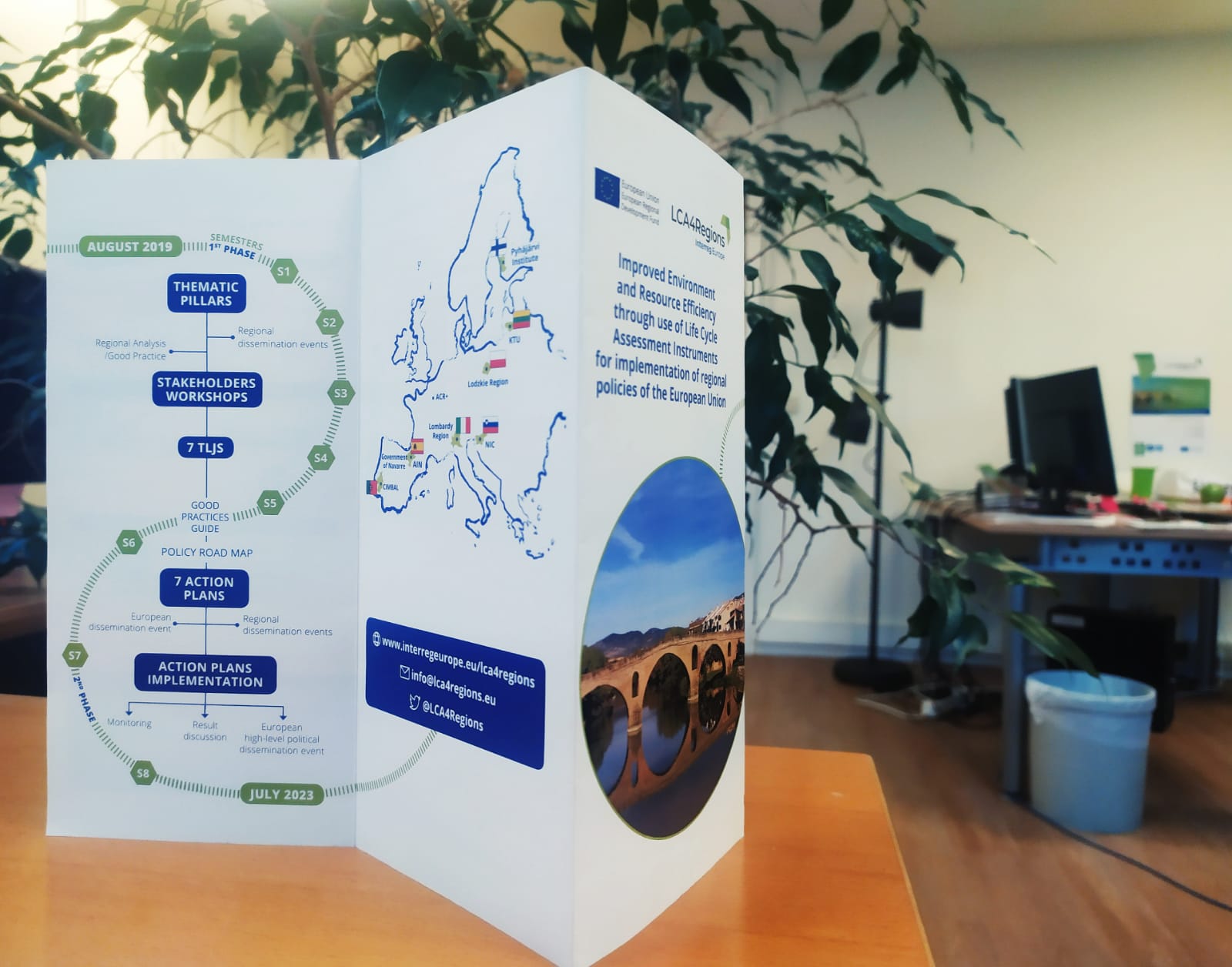Life Cycle Approaches (LCA) for sustainable regional development have been in the spotlight of the so-called “Transnational Learning Journey”of the Interreg Europe LCA4Regions project. This online three-day event prompted an inspiring exchange of experiences focused on the LCA concept and its relation to resource-efficiency, going through seven regional good practices,virtual study visits, and a final and fruitful peer-review session.
In the last months, the LCA4Regions partners have added new pieces to the challenging puzzle of this project: they have deepened and completed their seven regional analysis, collected regional good practices and refined the strategy for the future, strengthening the interregional cooperation that characterises this Interreg Europe project.
“The perceived high cost of LCA is a matter of perspective: from a barrier to an opportunity for long-term investment with benefits for the future”
declares Fritz Balkau, expert on LCA methodologies.
This is one of the key take-aways of the second LCA4Regions Transnational Learning Journey (TLJ) – a reoccurring rendez-vous fostering an exchange of expertise on the topic of LCA. The main protagonist of this new voyage was the region of Navarre (Spain), lead partner of the project. The event took place on 16, 17, and 18 June, and this time the agenda had a virtual touch, the meeting being organised online and entirely live-streamed on Twitter.
The event was focused on life cycle methods for resource-efficiency, one of LCA4Regions six pillars. The first day offered participants an overview of the project and the LCA concept. They had the chance to grasp Navarre’s policy context and to see opportunities and challenges of LCA4Rgions emerged from the regional analysis benchmark.
The icing on the cake was the intervention of Ramy Salemdeeb, environmental analyst expert on LCA from Zero Waste Scotland involved together with the LCA4Regions partner ACR+ in the “More circularity, less carbon” campaign. He explained how public authorities can work to reduce carbon impacts throughout the use of carbon metrics, and stressed the importance for the LCA practitioners to build a community, as key aspect to gather and exchange knowledge and to help decision-makers to have a holistic understanding of the issue. The day concluded on a strategic remark: integrating life cycle thinking into regional decision-making becomes even more essential in this period of crisis, when many certainties have fallen apart and a stronger need for change emerged.
On the second day, partners presented LCA good practices on resource efficiency from the seven partner regions and took inspiration from each other for future regional action plans. Participants got a glimpse of comparative LCA for Steel Plate Priming in Lithuania, recycled soil material in Finland - presented by Ramboll - the Slovenian good practice on energy and resource efficiency in hotel industry, LCA of building components - explained by IZODOM, the awards ‘more Alqueva, more value’ in Portugal, LEED Protocol introduced by Lombardy region (Italy), and MCP carbon footprint calculation in Navarre.
Finally, during the last day, partners and stakeholders took part in virtual study visits in Navarre: two companies explained how they work on resource efficiency. AGRALCO transforms and valorises winemaking by-products and BIOSASUN uses olive trees to make quality products.
The journey wound up with a dynamic and enriching round table for peer-to-peer review of the ambitious Navarre policy context: its Circular Economy Agenda, Waste Plan, Regional Law on Waste and its Taxation, Public Contracts Law, and Climate change roadmap. The result was an insightful discussion between partners and external experts based on the adequacy of policy instruments to enhance resource-efficiency, the extent of LCA application, and the replicability opportunities for other regions.
This second TLJ was a further step to the elaboration of seven Action Plans by 2022. The next TLJ will be hosted by the Finnish Pyhäjärvi institute in October 2020.










